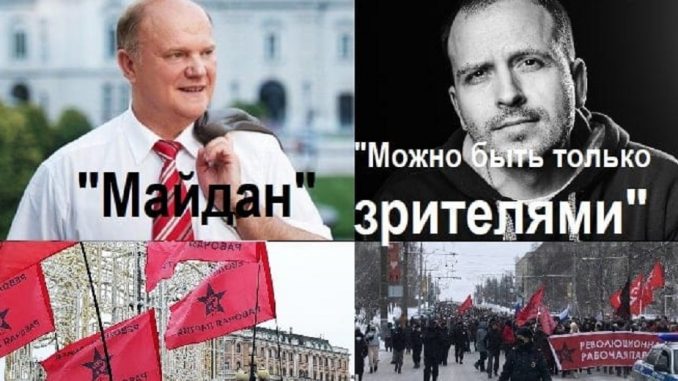
Capitalist contradictions underlie social protests. The protest movement in Russia (late January – early February 2021) for the leader of the liberal opposition Alexei Navalny is precisely a movement generated by these contradictions. After the assassination attempt on August 20, 2020, Alexei Navalny published, together with his investigation into the assassination attempt, the video “Putin’s Palace”, where he revealed the material property of the “master of the Kremlin.” – Vladimir Putin. People, who are already in material need, did not like it. Thus began the protests against those in power.
People do not come out so much “for” Navalny as “against” the bourgeois-Bonapartist regime established in the Kremlin. It would seem that all leftists and especially Marxists should be on the side of the protesters, of the working people, since this is in the interests of the majority, in the interests of true democracy. But there are “leftists” like the Stalinists and other colorful characters of opportunism who oppose these protests. They argue that this movement is not proletarian, nor socialist, because it is now led by a liberal opponent. These gentlemen, who consider themselves heirs to the Bolsheviks, must remember 1917, when the true Bolsheviks, along with the Liberals and Mensheviks, opposed Tsarism and other White Guards! These gentlemen who “are trying to learn from Lenin’s experience” should remember his work “The Infantile Disease of Left-wing Communism”, which talks about how to combine different strategies to bring together a true working class movement.
There is no doubt that liberal politicians, consciously or not, are vehicles of transnational finance capital. But it is about gaining the attention of the working masses! Rather than criticize the masses for the protests, the Russian left opportunists should help the masses to learn from their own experience, which is what class consciousness is all about.
The betrayal of opportunism lies not only in petty-bourgeois material interests, but also in the fear of the masses, the fear of great social events.
“This difference can be understood with such a simple example,” Lenin explained, “a Menshevik (opportunist), who wants to get an apple, standing under the apple tree, will wait for the apple to fall. A Bolshevik (Marxist) will come and pick the apple.”
Rumata








